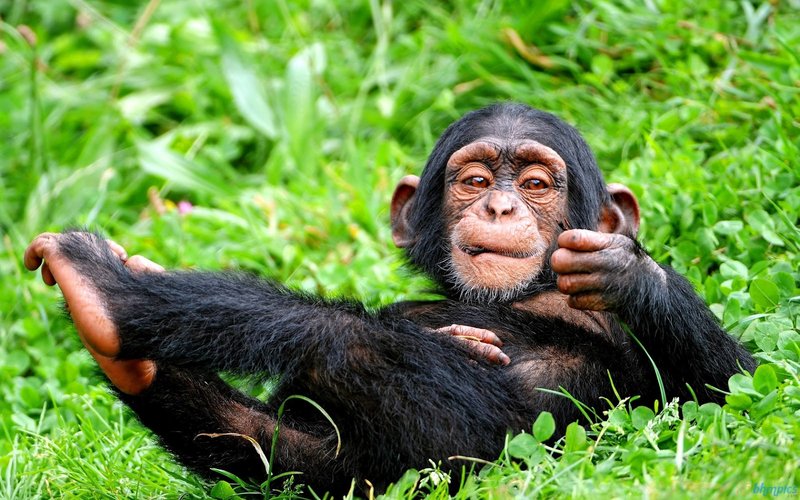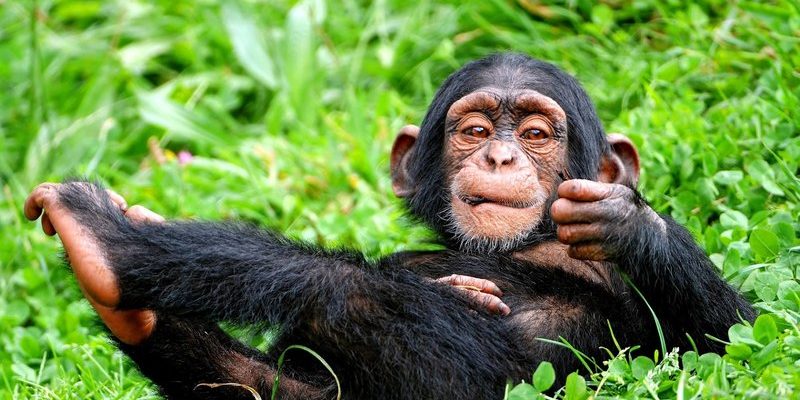
The world of chimpanzee parenting is rich with lessons about cooperation, affection, and survival. Imagine a busy day in a lush forest, where the sound of rustling leaves and playful squeals fills the air. This isn’t just a typical day in the jungle; it’s a glimpse into the intimate bond between mother and child among these intelligent primates. So, let’s dive into the heartwarming and sometimes challenging ways chimpanzees raise their young.
The Role of Chimpanzee Mothers
Chimpanzee mothers play a crucial role in raising their young. From the moment a baby is born, the mother is there to nurture and protect it. A chimpanzee infant, called an “infant,” clings tightly to its mother for support and security. This close bond is vital for the infant’s survival. Just like humans, chimp babies rely on their mothers for food and warmth.
Mothers nurse their infants for up to three years, providing not only nutrition but also comfort. During this time, they teach their young how to find food, recognize danger, and interact with others. It’s a slow process, but it’s filled with heartwarming moments. For example, a mother might gently encourage her infant to try new foods, showcasing a piece of fruit or even a tasty bug.
Throughout this nurturing phase, mothers also communicate with their infants through various sounds and gestures. This bonding experience is essential for developing emotional connections, much like how human parents interact with their babies. Young chimpanzees learn about their environment and social cues, setting the stage for their future interactions with the troop.
Learning Through Play
Play is a significant part of a young chimpanzee’s life. Just as children learn through games, chimpanzee infants engage in playful interactions with their peers and even their mothers. These play sessions are essential for developing physical skills and social bonds.
During play, young chimps practice climbing, swinging, and other aspects of agility. Imagine a group of young chimpanzees swinging from branches and chasing one another around the trees—it’s all part of honing their skills. They learn not only how to navigate their environment but also how to work together with their peers.
This playtime also allows infants to learn about social hierarchies within their troop. They observe how older chimps interact and begin to understand their place in the group. You might be wondering how this applies to their future. Well, these early social lessons are critical for building relationships and cooperation later on.
Support from the Troop
In chimpanzee society, the support doesn’t stop with the mother. The entire troop plays a role in raising the young. Other females, known as “alloparents,” often help care for infants. They might carry the baby or engage in playful antics to keep it entertained. This communal approach to parenting ensures that young chimpanzees are surrounded by love and protection.
For example, when a mother needs to gather food, she may entrust her infant to a close female companion. These alloparents not only help in immediate care but also offer additional teaching moments. By observing interactions among different members of the troop, infants learn important survival skills and social behaviors.
The benefits of this communal care model extend to the entire group. A united troop is more effective in protecting its young from predators and finding food. If danger approaches, all members rally together, showcasing a sense of teamwork that ensures the safety and upbringing of the next generation.
Challenges of Parenting in the Wild
Raising young isn’t all fun and games. Chimpanzee mothers face numerous challenges in the wild. Predators, habitat loss, and social pressures can make parenting particularly tough. For instance, mothers must constantly be on alert for dangers lurking nearby, such as leopards or large snakes.
Food availability also poses a constant threat to the health of both mothers and their infants. A mother must find enough nutritious food not only for herself but also for her growing baby. The stress of hunting for sustenance can lead to challenging feeding habits, which might affect the baby’s growth. Honestly, it’s a tough balancing act.
Moreover, social dynamics can present obstacles. Chimpanzees have complex relationships, and sometimes rivalries can arise, impacting how mothers interact with their young. However, despite these challenges, chimpanzee mothers are incredibly resilient and resourceful, often finding ways to protect and nurture their offspring against the odds.
Signs of Emotional Bonding
The emotional bond between a chimpanzee mother and her infant is profound and quite moving. Studies have shown that mothers often display signs of attachment that mirror the emotions we see in human parenting. For example, a mother will comfort her distressed infant, much like how a human parent would soothe a crying child.
This bond fosters a sense of security for the baby. When they’re with their mother, infants feel safe and understood. It’s not uncommon to see a mother grooming her child, which is both a hygiene practice and a way to reinforce their connection. Such affectionate gestures help to solidify their emotional ties.
As the infant grows, this bond continues to evolve. The mother may encourage independence while still providing support. This gentle push toward self-sufficiency is essential for developing confidence in navigating their world. It’s heartwarming to watch as these young chimpanzees gradually learn to embrace their environment.
Preparing for Independence
As young chimpanzees approach adolescence, their mothers begin to prepare them for independence. This stage is marked by a gradual shift in parenting style. Instead of being solely focused on nurturing, mothers start to allow their young to explore and engage with the world on their own.
A mother might encourage her adolescent to take short trips away from her side, allowing them to forage for food or socialize with peers. This not only fosters self-sufficiency but also builds character. You might think of it like teaching a teen to drive—there’s always a bit of nervousness, but it’s a necessary step for growth.
The transition can also involve some setbacks. Young chimps may struggle or hesitate as they navigate new experiences, but their mothers are always there to guide them along the way. This careful process of letting go ensures that they’re equipped with the skills needed to thrive as adults in the wild.
The way chimpanzees raise their young in the wild is a beautiful mix of nurturing, learning, and independence. From the unconditional love of a mother to the community support of the troop, every aspect of chimp parenting reflects their deep emotional intelligence and social structures.
In many ways, these parenting practices mirror our own human experiences, highlighting the universal need for care and connection. Observing how these incredible primates approach parenthood not only enriches our understanding of their lives but also reminds us of the bond we share with them. Each moment spent with their young is a testament to the resilience and dedication of chimpanzee mothers.
Ultimately, watching chimpanzees raise their young is not just about survival; it’s about love, connection, and the journey of growing up in a complex world. So, the next time you think about chimpanzees, remember the heartwarming story of their parenting and the lessons we can learn from them.

